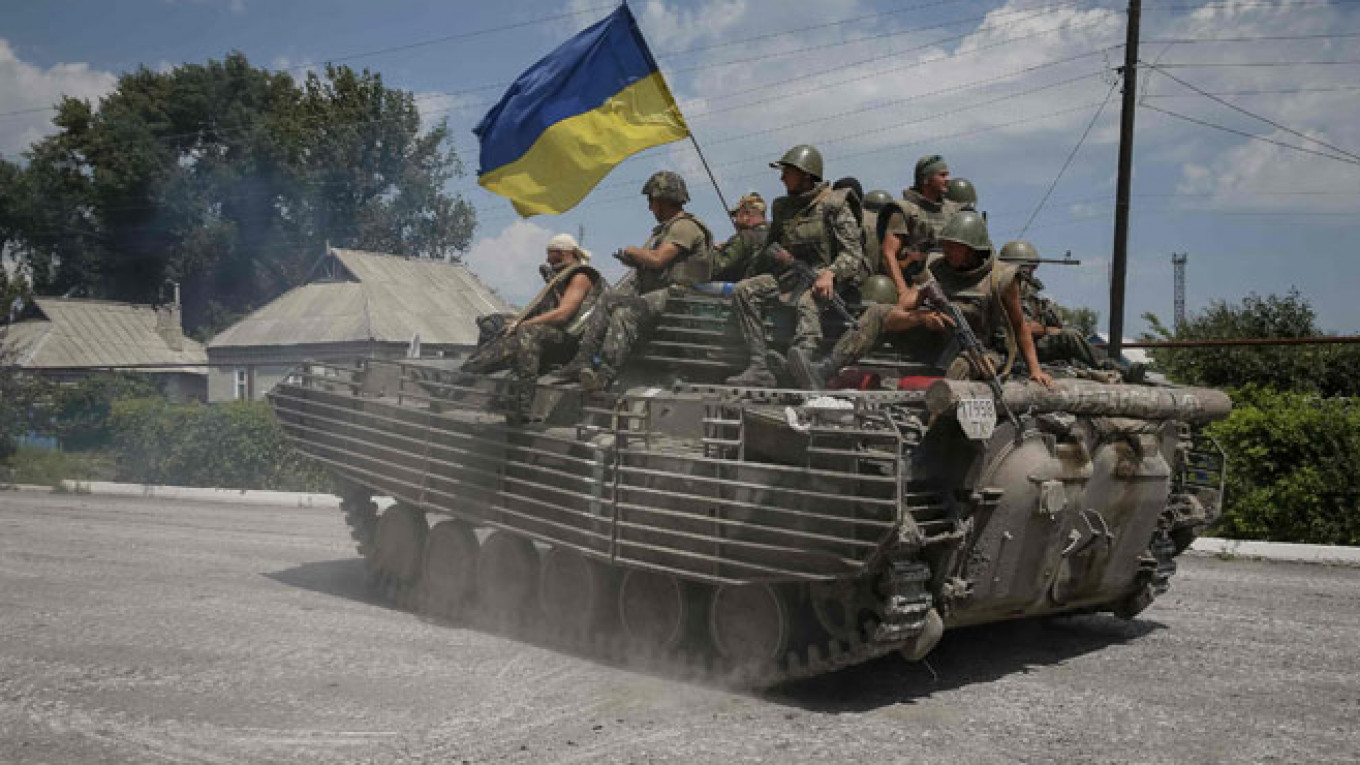The Defense Ministry accused Kiev on Tuesday of remaining "cynically" silent in the aftermath of deadly shelling along the Russia-Ukraine border, while Kiev appeared to blame Moscow for a deadly air strike on its own territory.
A cross-border shelling incident killed a man on the Russian side Sunday. Kiev promptly denied that its forces had attacked the border.
Deputy Defense Minister Anatoly Antonov told reporters on Tuesday, "the Ukrainian side cynically rejects the obvious facts and is doing everything to deflect accusations of shelling on Russian territory."
Antonov argued that increased rhetoric from Kiev, including claims of a renewed buildup of Russian troops on the border, were part of an elaborate effort to evade responsibility.
Meanwhile, there were reports on Tuesday of an air strike killing four civilians in the small town of Snizhne, for which Kiev again denied responsibility, and appeared to point a finger at Russia.
"Today at 7 a.m. an unknown plane carried out a bombing attack on Snizhne. The flight can be described only as a cynical provocation," Andriy Lysenko, a spokesman for Ukraine's National Defense and Security Council, told reporters.
His remarks appeared to be an accusation against Russia, since the rebels have not used aircraft in the conflict.
Fighting over the past four months between forces of the pro-Western Kiev government and separatists who want union with Moscow has intensified since last Friday, with Ukraine and Russia blaming each other for cross-border attacks and little prospect of a cease-fire.
More than 200 Ukrainian servicemen have been killed as well as hundreds of civilians and rebels since violence erupted in Ukraine's Russian-speaking east following a pro-Europe revolt in Kiev that ousted a Moscow-backed president in February and led to Russia's annexation of Crimea.
Ukrainian President Petro Poroshenko, pressing the European Union to take a harder line with Moscow possibly involving new tougher sanctions, said on Monday that Russian military officers were now fighting alongside separatists and heavy military equipment is pouring across the border from Russia.
Poroshenko, elected in late May, refused on June 30 to extend a 10-day unilateral cease-fire which he said had been breached repeatedly by the separatists. He renewed the government's military campaign to break rebel resistance.
The separatists, who have set up 'people's republics,' have been pushed back into the main eastern city of Donetsk, though they remain also in control of the border city of Luhansk.
German Foreign Minister Frank-Walter Steinmeier, in a new peace effort, said a diplomatic contact group might talk to separatists by video conference on Tuesday and meet them in person soon afterwards.
He said all parties were making a "strong effort" for the group — which includes Russia, Ukraine and the Organization for Security and Cooperation in Europe — to hold the video conference and agree a venue for a direct meeting with the rebels.
Moscow has invited foreign military attaches to visit the Russian town hit by fatal shelling on Sunday, an event for which it threatened "irreversible consequences." Ukraine denied that its armed forces were responsible for the incident.
(MT, Reuters)
See also:
Ukraine Says 30 Dead After Rebels Launch Missile Attack at Russian Border
A Message from The Moscow Times:
Dear readers,
We are facing unprecedented challenges. Russia's Prosecutor General's Office has designated The Moscow Times as an "undesirable" organization, criminalizing our work and putting our staff at risk of prosecution. This follows our earlier unjust labeling as a "foreign agent."
These actions are direct attempts to silence independent journalism in Russia. The authorities claim our work "discredits the decisions of the Russian leadership." We see things differently: we strive to provide accurate, unbiased reporting on Russia.
We, the journalists of The Moscow Times, refuse to be silenced. But to continue our work, we need your help.
Your support, no matter how small, makes a world of difference. If you can, please support us monthly starting from just $2. It's quick to set up, and every contribution makes a significant impact.
By supporting The Moscow Times, you're defending open, independent journalism in the face of repression. Thank you for standing with us.
Remind me later.






